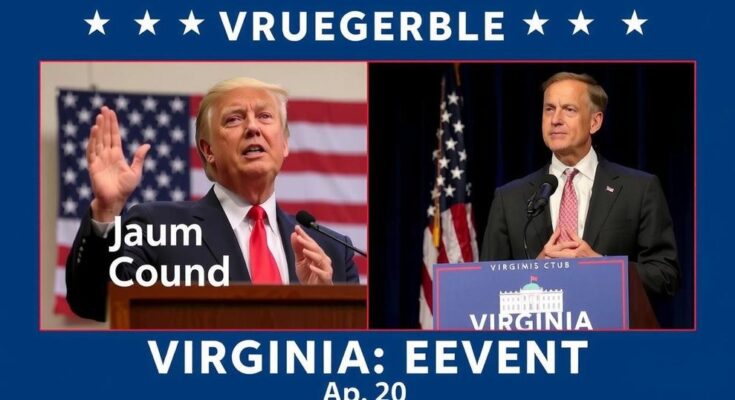Virginia’s upcoming gubernatorial primaries show minimal competition, with Abigail Spanberger running unopposed for the Democrats, while Republicans face competition from Winsome Sears and Merle Rutledge. Meanwhile, Alaska has retained its ranked-choice voting system, contrasting with recent rejections in other states, and around 16% of officials targeted for recall from 2014 to 2023 were removed from their positions, showcasing the complexities of electoral politics.
As Virginia approaches its gubernatorial primaries slated for June 17, 2025, attention turns to the dynamics of the election. Currently, the Democratic Party’s Abigail Spanberger is running unopposed, while the Republican side sees competition between Winsome Sears and Merle Rutledge. Historical trends indicate that the party losing the preceding presidential election typically gains control of the governorship. Alaska’s recent vote confirmed the retention of ranked-choice voting amid mixed results in other states, highlighting ongoing debates surrounding electoral reform. Additionally, an average of 16% of officials targeted for recall have been successfully removed from office over the last decade, raising questions about political accountability and voter engagement.
The Virginia gubernatorial election in 2025 will unfold in a context characterized by limited primary competition. Abigail Spanberger, a prominent figure representing the Democrats, appears poised for a clear path to nomination, while Republicans face a two-way race. Following the adoption and subsequent retention of ranked-choice voting in Alaska, further analysis of similar electoral reforms in other states led to varied outcomes, showcasing the complexities involved in shaping voting systems. Additionally, the history of official recalls in the United States indicates that such political maneuvers often yield significant results, influencing future electoral strategies.
The anticipated gubernatorial primaries in Virginia reflect a predictable pattern, with Abigail Spanberger set to continue the Democratic legacy unopposed. Meanwhile, competition among Republicans adds an intriguing layer to the election’s unfolding drama. Alaska’s endorsement of ranked-choice voting amid broader rejections in other states signifies the contentious nature of electoral reforms. Furthermore, the historical data on recall elections underscores the essential interplay of governance, accountability, and voter influence in shaping the political landscape.
Original Source: news.ballotpedia.org




